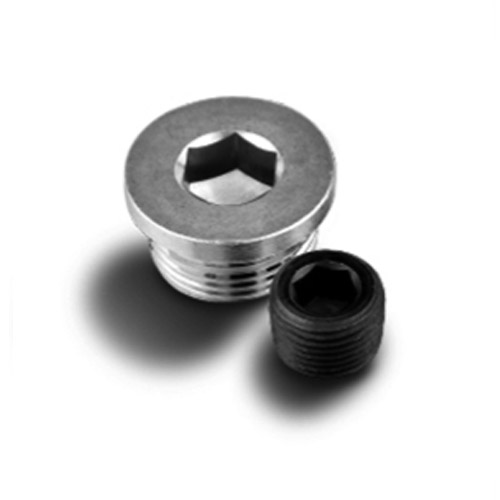Flexible Rubber Fuel Hose for Efficient Petrol Delivery and Optimal Performance
Dec . 11, 2024 10:10 Back to list
Flexible Rubber Fuel Hose for Efficient Petrol Delivery and Optimal Performance
The Essential Role of Rubber Petrol Pipes in the Modern Automotive Industry
In the complex world of automotive engineering, each component plays a crucial role in ensuring the smooth operation of vehicles. Among these, rubber petrol pipes—commonly referred to as fuel hoses—are critical for the transportation of fuel from the tank to the engine. This article delves into the significance, construction, types, and maintenance of rubber petrol pipes, highlighting their importance in ensuring vehicle efficiency and safety.
Understanding Rubber Petrol Pipes
Rubber petrol pipes are flexible tubes made from durable rubber compounds engineered to withstand the dynamic conditions of an automobile's fuel system. These pipes facilitate the flow of petrol, ensuring that the engine receives the necessary fuel for optimal performance. They are typically designed to resist various environmental factors, including heat, pressure, and chemical interactions with fuel.
Construction and Materials
The primary material used in the construction of rubber petrol pipes is synthetic rubber, which offers excellent resistance to fuel and temperature. Ethylene Propylene Diene Monomer (EPDM) and Nitrile Rubber (NBR) are the most commonly utilized compounds. EPDM is particularly valued for its resistance to oxidation and ozone, which can degrade rubber over time. NBR, on the other hand, provides superior fuel resistance and is often chosen for high-stress applications.
To enhance durability, rubber petrol pipes often feature multiple layers. The inner layer, which comes into direct contact with the fuel, is designed to withstand the corrosive properties of petrol. The outer layers typically serve as protective barriers against physical damage and environmental factors, such as heat and moisture.
Types of Rubber Petrol Pipes
Rubber petrol pipes can be categorized based on their applications and configurations. The main types include
1. Low-Pressure Fuel Hoses These are designed for applications where fuel is transported at low pressures. Common in older vehicle models, they are essential for return lines and venting systems.
2. High-Pressure Fuel Hoses Used in modern vehicles equipped with fuel injection systems, these hoses must withstand significantly higher pressures. They are designed to ensure a consistent fuel supply to the engine while preventing leaks.
rubber petrol pipe

3. Flexible Fuel Pipelines These are used in various configurations, allowing for ease of installation in tight spaces. The flexibility ensures that the hoses can bend without kinking, maintaining a continuous flow of fuel.
4. Braided or Reinforced Hoses For high-performance applications, these hoses are often reinforced with additional layers, providing enhanced strength and resistance to bursting under high pressure.
Importance in Automotive Performance
The quality and condition of rubber petrol pipes play a significant role in vehicle performance. Worn or damaged hoses can lead to fuel leaks, resulting in decreased efficiency, poor engine performance, or even dangerous fire hazards. Regular inspection and replacement of these hoses are essential to maintaining optimal engine function.
Additionally, as the automotive industry shifts towards electric vehicles, the need for high-quality rubber petrol pipes will persist in hybrid models and vehicles still reliant on combustion engines. Manufacturers continue to innovate, developing hoses that can withstand new fuel formulations and higher temperatures associated with advanced engine technologies.
Maintenance and Replacement
To ensure the longevity and functional integrity of rubber petrol pipes, regular maintenance is crucial. Vehicle owners are advised to inspect hoses for signs of wear, such as cracks, brittleness, or fuel odors. Any damaged hoses should be replaced immediately to prevent further complications.
When replacing rubber petrol pipes, it is vital to choose high-quality, manufacturer-approved parts that meet industry standards. Using subpar materials can compromise the entire fuel system, leading to increased costs and safety risks.
Conclusion
Rubber petrol pipes are an indispensable component of the automotive fuel system, playing a vital role in the performance and safety of vehicles. Their engineered flexibility, resistance to heat and chemicals, and ability to withstand pressure are just a few reasons why they are essential in today's automotive landscape. As technology advances and the automotive industry evolves, the importance of reliable rubber petrol pipes will undoubtedly remain, ensuring that vehicles run efficiently and safely for years to come.
Latest news
-
Refrigeration Hose-HEBEI KEMO|Low Permeability&Pulse Resistance
NewsAug.12,2025
-
Refrigeration Hose-HEBEI KEMO AUTO PARTS TECHNOLOGY CO., LTD
NewsAug.12,2025
-
Refrigeration Hose - HEBEI KEMO AUTO PARTS TECHNOLOGY CO., LTD|Low Permeability&Ozone Resistance
NewsAug.12,2025
-
Durable AC Pressure Hose for Reliable AC System Repair
NewsAug.12,2025
-
Refrigeration Hose-HEBEI KEMO AUTO PARTS TECHNOLOGY CO., LTD|Low Permeability,Pulse-Resistance
NewsAug.11,2025
-
Refrigeration Hose-Hebei Kemao|Industrial Applications&Automotive Systems
NewsAug.11,2025
